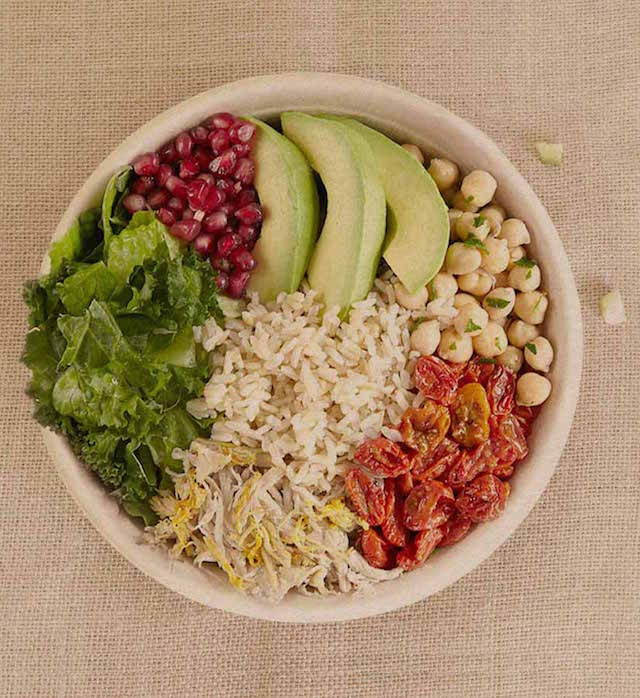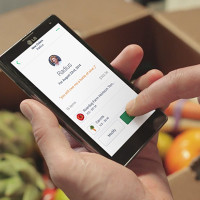
It seems like every day we read about another food startup scaling back or closing shop. In many cases, these businesses have great products or services. But traditional investors, bound by traditional return expectations, refuse to wait out the turbulence inherent in the early stages of a food startup.
When I launched my office catering business, Ox Verte, I knew our biggest challenge would be to create a scalable model that could achieve attractive unit economics early on. Food businesses require lots of iteration, over a period of time. That kind of iteration requires either very patient, understanding investors or no investors at all. I chose no investors, but this meant that our cash position had to be self-sustaining from the start.
We launched in February 2015 and today, two years later, we are still a very small business—a business that most of my business school friends would find pretty “uncool” compared to most startups. Make no mistake – we have grand ambitions, but we don’t call ourselves the Uber of anything, and we don’t talk about hockey sticks when we describe our growth. That said, we’ve served over 50,000 New Yorkers since we launched and we are steadily growing. Also, we are profitable—and I don’t mean a weird, doctored-up version of profitability.
The modest but genuine success we’ve achieved so far is the result of a few key Do’s and Don’ts we’ve adopted:
First, we focus on Unit Economics every single day. If the business model isn’t designed around being profitable, it will be difficult to ever get there. At Ox, we don’t believe margins magically fall in line if your sales are good. If we subsidize our unit economics in any way, then we are tricking ourselves.
To build Ox’s business model, we asked: What are the most profitable fast-casual concepts? What kind of unit economics and EBITDA margins do they have? Then we said: Okay, let’s raise the bar a little and design an office catering model that can do better. We used an extremely simple spreadsheet and created our menu and our team around it. One concrete result of that exercise is our group size. By serving a minimum of 10 people we can more easily cover our costs. As a result, from Day 1, every lunch we’ve delivered has contributed to the bottom line.
Because we built the business around unit economics, we always have a blueprint to follow. We know how much we can spend on packaging and food, which simplifies our daily decision making process.
Second, we keep our menu super simple. Every single option and variation adds a layer of complexity, which often outweighs the value you are adding to the consumer. Chipotle taught every food-preneur the enormous potential of a simple menu. At Ox, we have one menu that changes seasonally. Every office across Manhattan receives that same menu, whether they have 10 people or 600. This allows us to be efficient with our labor and to keep our quality consistent. We can and will add new menus and product lines when the time is right, but they will all be as simple as this one.
Also, we don’t confuse raising money with earning money. Sometimes it appears that raising money is more important than actually earning money. Some people find a $10 million Series A more exciting than $500,000 in real EBITDA. At Ox, we feel it’s important to wait to raise money until you know what to do with it. And the right partners will agree with that approach.
We don’t try to be too many things. If you are a food business, be a food business. If you are a logistics business, be a logistics business. Don’t try to be too many things at once. Forge partnerships or outsource.
At Ox, we are trying to (1) make food and (2) create a trusted brand. We use technology but we don’t build it. We won’t create an algorithm to reinvent urban logistics, but maybe we’ll partner with someone who has. There are so many smart people doing all of these things—in food you have to do fewer things, but better. I promise that will keep you busy enough.
Finally, we build everything to scale. If you are looking to achieve big things, you have to build your business to scale, even when you are tiny. But never, ever start scaling until you know you can profit. At Ox, I often get asked about competitive pressure, but the truth is that there is lots of room in food. There isn’t one winner, and I don’t believe you have to sprint into new markets before you are ready.
While we are still in our infancy, I believe our “unsexy” approach to growth at Ox Verte will serve us well. Either way, we promise transparency, so we can all keep learning together. We need change in the food industry—there is no more room for secrets.
Learn more about Ox Verte’s philosophy and catering options here.





